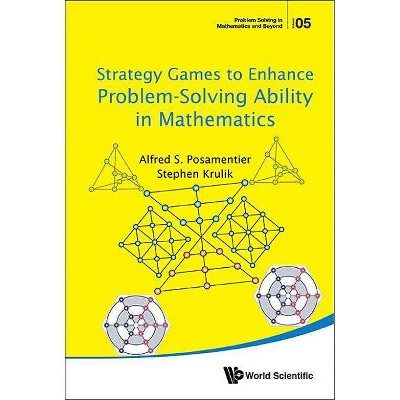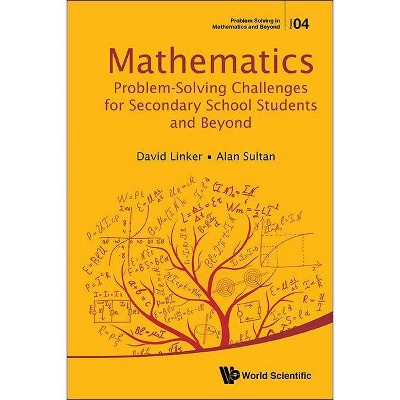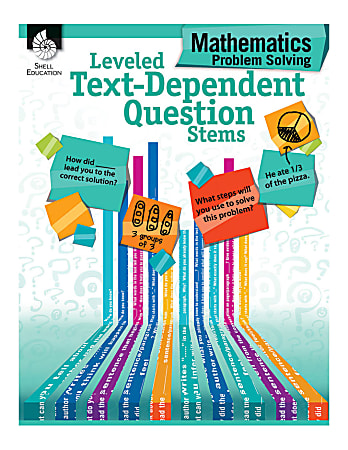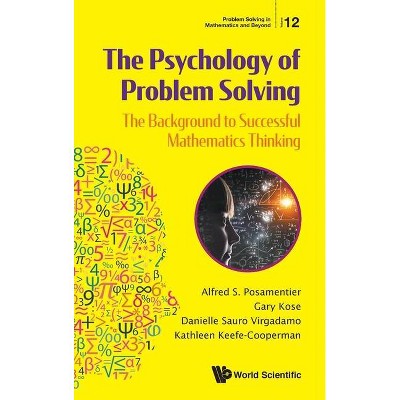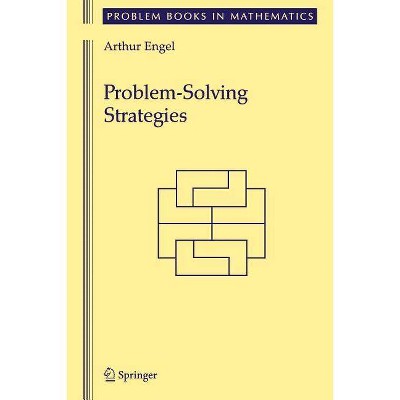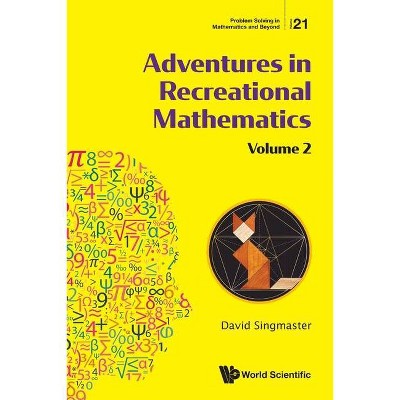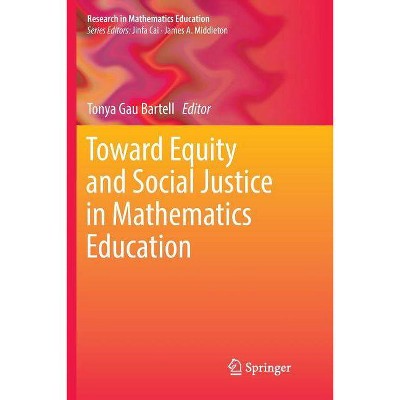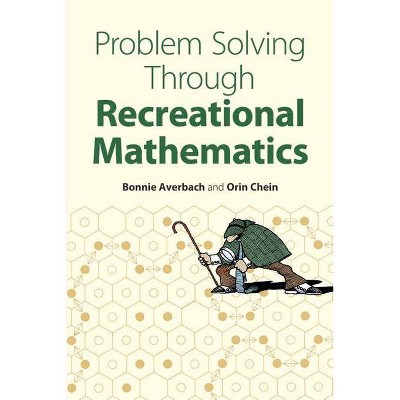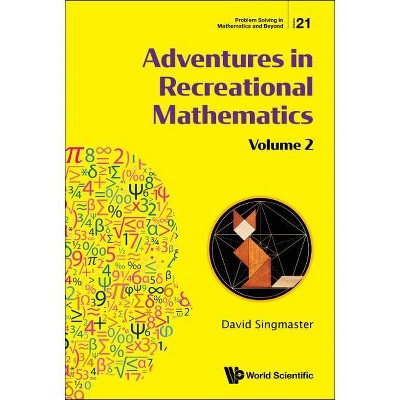Problem Solving in Mathematics Instruction and Teacher Professional Development - (Research in Mathematics Education) (Paperback)
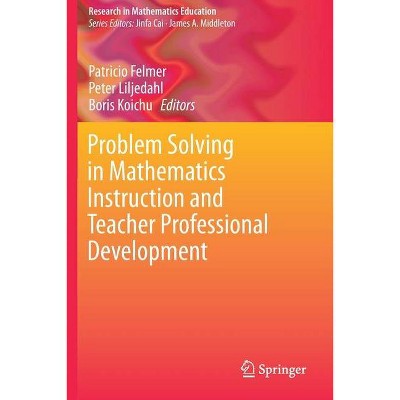
Similar Products
Products of same category from the store
AllProduct info
<p/><br></br><p><b> Book Synopsis </b></p></br></br><p>Recent research in problem solving has shifted its focus to actual classroom implementation and what is really going on during problem solving when it is used regularly in classroom. This book seeks to stay on top of that trend by approaching diverse aspects of current problem solving research, covering three broad themes. Firstly, it explores the role of teachers in problem-solving classrooms and their professional development, moving onto--secondly--the role of students when solving problems, with particular consideration of factors like group work, discussion, role of students in discussions and the effect of students' engagement on their self-perception and their view of mathematics. Finally, the book considers the question of problem solving in mathematics instruction as it overlaps with problem design, problem-solving situations, and actual classroom implementation. The volume brings together diverse contributors from a variety of countries and with wide and varied experiences, combining the voices of leading and developing researchers. The book will be of interest to any reader keeping on the frontiers of research in problem solving, more specifically researchers and graduate students in mathematics education, researchers in problem solving, as well as teachers and practitioners.</p><p/><br></br><p><b> From the Back Cover </b></p></br></br>Recent research in problem solving has shifted its focus to actual classroom implementation and what is really going on during problem solving when it is used regularly in classroom. This book seeks to stay on top of that trend by approaching diverse aspects of current problem solving research, covering three broad themes. Firstly, it explores the role of teachers in problem-solving classrooms and their professional development, moving onto--secondly--the role of students when solving problems, with particular consideration of factors like group work, discussion, role of students in discussions and the effect of students' engagement on their self-perception and their view of mathematics. Finally, the book considers the question of problem solving in mathematics instruction as it overlaps with problem design, problem-solving situations, and actual classroom implementation. The volume brings together diverse contributors from a variety of countries and with wide and varied experiences, combining the voices of leading and developing researchers. The book will be of interest to any reader keeping on the frontiers of research in problem solving, more specifically researchers and graduate students in mathematics education, researchers in problem solving, as well as teachers and practitioners.<p/><br></br><p><b> Review Quotes </b></p></br></br><br><p>"This book is a great repository of knowledge for graduate students, mathematics researchers and teacher educators who wants to effectively implement problem-solving in classrooms." (Sandra Richy John, MAA Reviews, January 23, 2021)</p><br><p/><br></br><p><b> About the Author </b></p></br></br><b></b><b>Patricio Felmer</b> is a mathematician working at the University of Chile, specialized in the area of Partial Differential Equations. During the last ten years, he has steadily moved towards Mathematics Education, working in projects for the Chilean government on the definition of Standards for the Formation of Mathematics Teachers and on the development of material for them. In the last years, he has been working in R&D projects with the aim of implementing professional development strategies for in-service teachers based on problem solving. In this direction, he is leading ARPA Initiative, an independent program for introducing problem solving in Chilean Classrooms through professional development of teachers teaching mathematics in all levels, preschool, primary, secondary and tertiary education.<p><b>Peter Liljedahl</b> is a Professor of Mathematics Education in the Faculty of Education and an associate member in the Department of Mathematics at Simon Fraser University in Vancouver, Canada. He is the coordinator of the MSc and PhD Program in Mathematics Education and is a co-director of the David Wheeler Institute for Research in Mathematics Education at Simon Fraser University. More globally, Dr. Liljedahl is the current president of the International Group for the Psychology of Mathematics Education. Dr. Liljedahl serves on the editorial boards of ESM, JMTE, MTL, FMEJ, MERJ, and CJSMTE and is a senior editor of IJSME. He has authored or co-authored 7 books, 17 book chapters, 26 journal articles, and over 50 conference papers. Dr. Liljedahl is also a member of the executive of the British Columbia Mathematics Teachers Association (BCAMT) and former co-editor of their flagship journal, Vector. Dr. Liljedahl is a former high school mathematics teacher who has kept his research interest and activities close to the classroom. His research interests are creativity, insight, and discovery in mathematics teaching and learning; the role of the affective domain on the teaching and learning of mathematics; the professional growth of mathematics teachers; mathematical problem solving; numeracy; and engaging student thinking. He consults regularly with schools, school districts, and ministries of education on issues of teaching and learning, assessment, and numeracy.</p><p><b>Boris Koichu</b> is an Associate Professor at the Department of Science Teaching of the Weizmann Institute of Science. His research focus is on learning for and through mathematical problem solving and problem posing, with special focus on the interplay of cognitive, affective and situational factors involved. Prof. Koichu is an author of about a hundred of papers published in peer-reviewed journals, edited books and peer-reviewed conference proceedings, and a co-editor of a book on mathematical creativity and giftedness. He is an editorial board member of Journal of Mathematical Behavior and International Journal of Science and Mathematics Education. He also serves as a member of the Education Committee of the European Mathematical Society. Koichu received his M.Sc. in mathematics from Lviv State University, Ukraine, in 1991, and his Ph.D. in mathematics education from the Technion - Israel Institute of Technology, in 2004. Following two-year post-doctoral fellowship at the Faculty of Mathematics of the University of California, San Diego, he joined the faculty of the Technion in 2006. Boris Koichu has been an academic advisor of 13 Ph.D. students and a PI of several research projects funded by the Israel Science Foundation and the Ministry of Education of Israel. He moved to the Weizmann Institute of Science in March 2017 and is currently working on a new project entitled TRAIL - Teacher-Researcher Alliance for Investigating Learning. <br></p><p></p><p></p>
Price History
Price Archive shows prices from various stores, lets you see history and find the cheapest. There is no actual sale on the website. For all support, inquiry and suggestion messagescommunication@pricearchive.us
